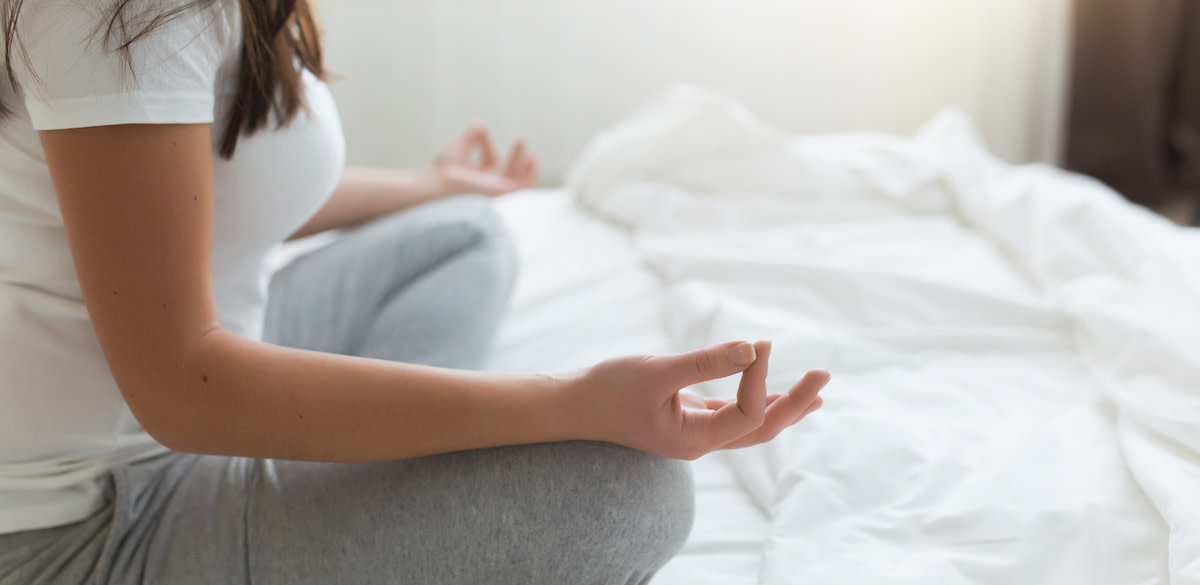Best Time to Meditate: Time of Day for Meditation Practice
Written by MasterClass
Last updated: Jul 27, 2022 • 4 min read
Finding the best meditation time is essential to making meditative practice part of your daily routine. Although the best time of day to meditate varies from person to person, there are several factors to consider before determining the best time to meditate.
Learn From the Best
When Is the Best Time to Meditate?
Regular meditation can reduce stress levels, increase your awareness of the present moment, and positively impact your mental and physical health. Choosing the ideal time of day for your meditation practice is a personal decision—there’s no right or wrong time to meditate.
However, the time of day you choose should suit your experience level and the type of meditation you intend to practice. For example, beginners might find an hour-long meditation session first thing in the morning overly challenging. However, a quick guided meditation might help energize you on your lunch break or give you the sense of calm you need before bed. Ultimately, when you practice mindfulness meditation depends on what makes the most sense for your personal life.
Morning Meditation
Many people incorporate meditating into their morning routine. The morning often contains the least amount of distractions, and practicing just ten minutes of meditation can put you in a positive headspace for the entire day. However, meditating in the early morning hours might be unnecessarily taxing if you’re not a morning person. That’s okay—consider meditating on your lunch hour or at the end of the workday instead. (Sleep expert Matthew Walker can help you determine if you’re a night owl or morning lark.)
Midday Meditation
Meditating in the middle of the day can help you clear your mind and give you a mental break from the stressors of daily life. Meditation apps often provide short, guided meditations perfect for practicing on a lunch break. Meditating in the middle of the day won’t work for everyone. Depending on your situation, it might be challenging to find a quiet space. Plus, work and life responsibilities might exacerbate mind-wandering and make it hard to focus on your practice.
Evening Meditation
Evening meditation can help you fall asleep more easily. Meditation helps treat stress, anxiety, and depression—all three of which may cause insomnia. Moreover, meditation may reduce your heart rate, decrease your blood pressure, and increase production of the sleep hormone melatonin. An evening meditation provides much-needed relaxation, whether at the end of a workday or right before bed. Many people who have difficulty sleeping find that meditation keeps their minds from wandering, allowing them to fall asleep faster. Learn more about meditation for sleep.
Meditation to Reduce Stress
While some people might find a specific time of day better suited to meditation, others may choose to turn to the practice when they feel stressed. Meditation is a useful technique because when you respond to stress mindfully, you appraise thoughts, feelings, and perceived threats. If you take a moment to observe your current state, you can bring awareness to the fact that no danger exists in the moment, which can lead to relaxation.
How to Determine the Best Time of the Day to Meditate
Consider the following factors when choosing the perfect time for your regular meditation practice:
- Choose a time that allows for consistency. You’re more likely to reap the benefits of meditation if you practice consistently. Choose a time of the day that guarantees you have the time to meditate. For example, you could choose to wake up ten minutes earlier to give yourself the time to meditate in the morning.
- Consider your experience level. Beginners might find it difficult to meditate in the morning, especially with the day's responsibilities looming. It’s essential to choose a time that doesn’t feel overwhelming. Check out Jon Kabat-Zinn’s meditation guide for an easy way to get started.
- Consider your location. A quiet, distraction-free environment may help if you’re new to meditation. If you live in a busy household where mornings are hectic, you might opt to meditate in the quiet of your car on your lunch break or at night when the house is quiet.
Jon-Kabat Zinn on How to Meditate
Jon-Kabat Zinn, founder of the Mindfulness-Based Stress Reduction Program, encourages you to meditate whenever you can. Even so-called distractions can be useful:
Very often, when people start to meditate, they begin to think they’re not doing it right. How do I do it? I want to do it right. Now that I’m meditating, now that I’ve joined some kind of meditation program, whatever it is, I want to do it right. And I don’t seem to be able to do it right. But the curriculum of your meditation practice is whatever arises. So you can easily think, I’d be having a great meditation if only this wasn’t happening. But whatever the “this” is, that’s a perfect occasion to put out the welcome mat for that. Because guess what? It’s already here. It’s part of the actuality of experience in this moment. So the challenge is, again, always the same: How are we going to be in wise relationship with the “this,” even if it’s seriously unwanted, unexpected, or just plain annoying?
Want to Learn Even More About Cultivating a Mindfulness Practice?
Find something comfortable to sit or lie on, grab a MasterClass Annual Membership, and dial into the present moment with Jon Kabat-Zinn, the father of the Western mindfulness movement. From formal meditation exercises to examinations of the science behind mindfulness, Jon will prepare you for the most important practice of them all: life itself.
